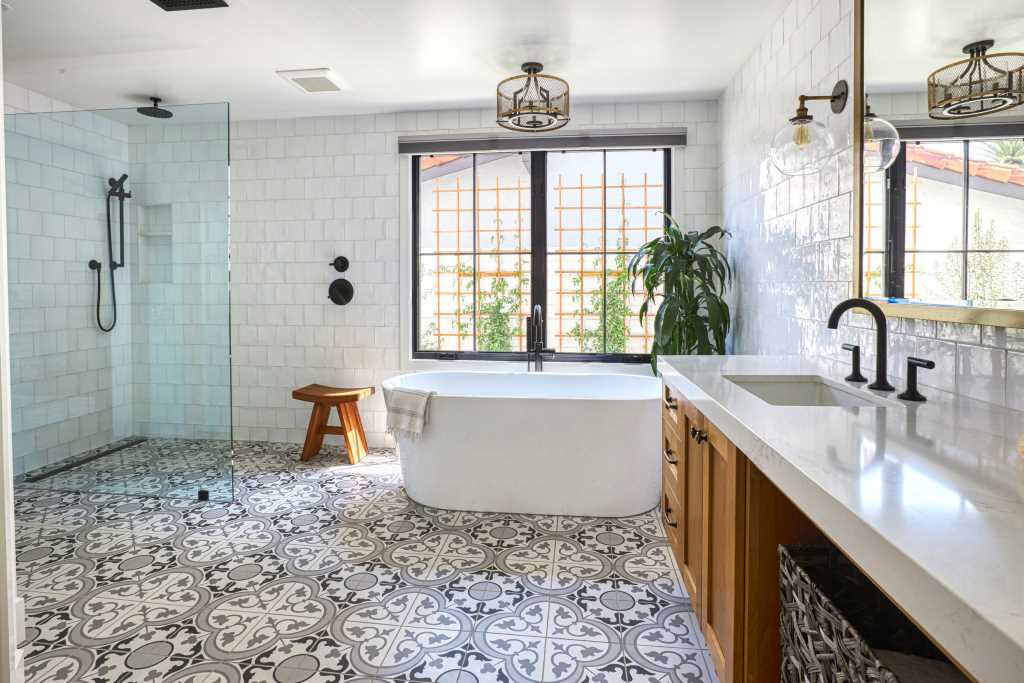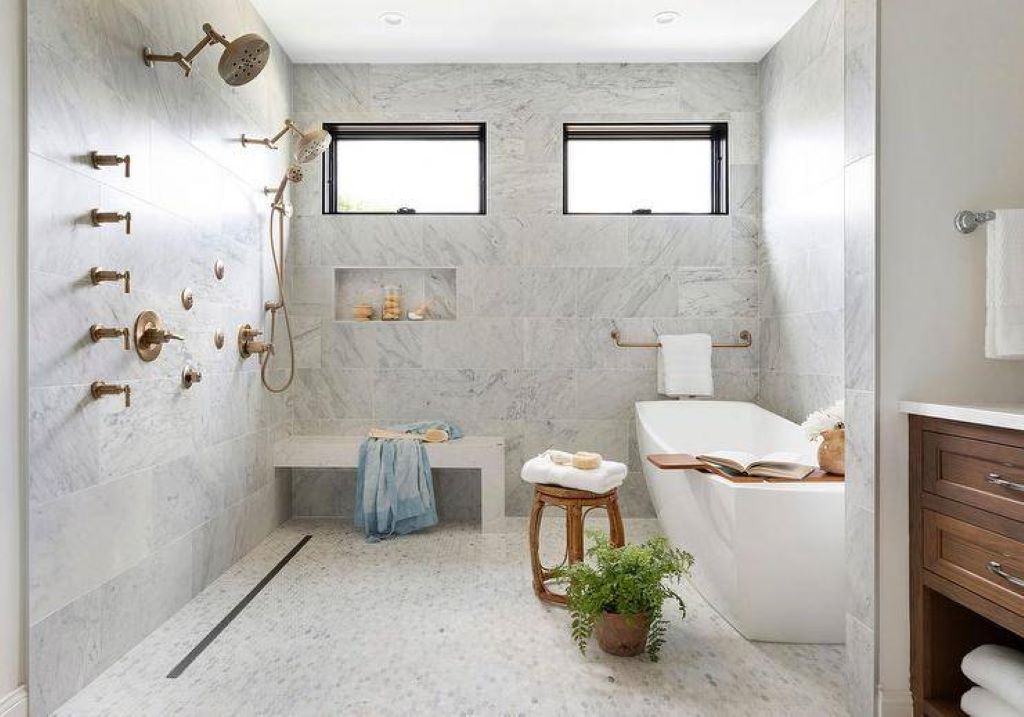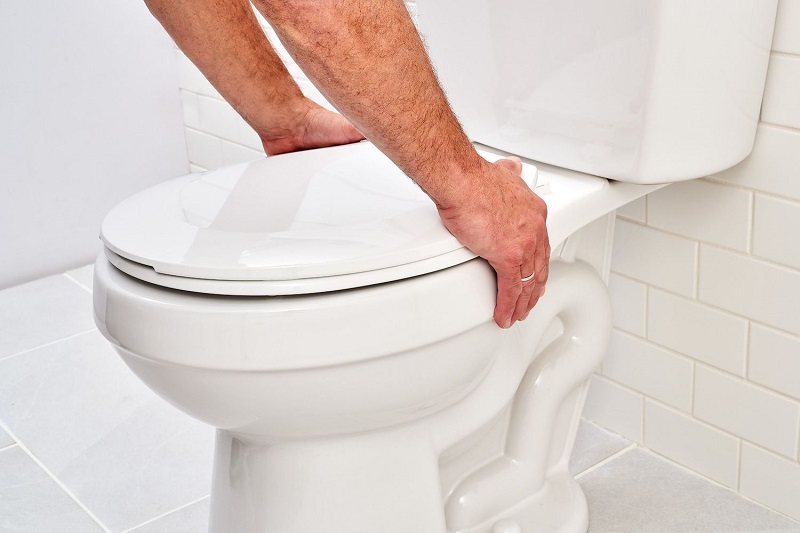Walk-in showers are the epitome of modern bathroom elegance and accessibility. Their sleek design and open concept can transform your daily routine into a luxurious spa experience. However, the success of your walk-in shower project hinges on selecting the right materials that harmoniously blend aesthetics, durability, and functionality.
This comprehensive guide will equip you with the knowledge needed to make informed decisions as you embark on this exciting renovation journey. We’ll delve into the diverse range of materials available for each component of your walk-in shower, from the shower pan to the walls and beyond. By understanding the unique properties of each material, you’ll be empowered to craft a shower that not only reflects your personal style but also stands the test of time.
The Shower Pan: The Foundation of Your Oasis
The shower pan, also known as the shower base, is the cornerstone of your walk-in shower. It’s responsible for collecting water and directing it towards the drain, preventing leaks and water damage. When choosing a shower pan, consider the following materials:
- Tile: Tile offers unparalleled design versatility, with a wide array of colors, patterns, and textures to choose from. Porcelain and ceramic tiles are popular choices due to their durability and water resistance. For a luxurious bathroom experience, consider a walk-in shower with bench, as it not only enhances comfort but also adds a touch of elegance. However, tile installation requires expertise and can be more expensive than other options.
- Acrylic: Acrylic shower pans are budget-friendly and easy to install. They come in various colors and styles, making them a versatile choice. However, acrylic can be prone to scratches and discoloration over time.
- Solid Surface: Solid surface shower pans, often made from materials like Corian or cultured marble, offer a seamless and elegant look. They are durable, stain-resistant, and can be repaired if damaged. However, they can be more expensive than acrylic.
- Natural Stone: Natural stone shower pans, such as marble or granite, exude luxury and sophistication. They are durable and add a touch of natural beauty to your bathroom. However, natural stone can be porous and requires regular sealing to prevent staining.
Shower Walls: A Canvas for Creativity
The shower walls provide a canvas for your design aspirations. Consider these materials when making your selection:
- Tile: Tile remains a popular choice for shower walls due to its versatility and wide range of design possibilities. Ceramic, porcelain, glass, and natural stone tiles are all viable options.
- Solid Surface: Solid surface materials create a sleek and seamless look on shower walls. They are easy to clean, non-porous, and available in various colors and patterns.
- Acrylic or Fiberglass: Acrylic and fiberglass shower wall panels are budget-friendly and easy to install. They come in a variety of colors and styles, but may not offer the same level of design flexibility as tile or solid surface materials.
- Natural Stone: Natural stone slabs, such as marble or granite, bring a touch of luxury to your shower walls. However, they are expensive and require professional installation.
Shower Doors or Enclosures: Defining Your Space
The choice between shower doors and enclosures depends on your desired aesthetic and practical needs.
- Frameless Glass Doors: Frameless glass doors create a clean and modern look, making your bathroom appear more spacious. They are easy to clean and allow natural light to flow through.
- Framed Glass Doors: Framed glass doors are more affordable than frameless options and offer a variety of frame finishes to complement your bathroom décor. However, the frames can be harder to clean.
- Shower Curtains: Shower curtains are the most budget-friendly option and provide a wide range of colors, patterns, and textures. They are easy to replace, but may not be as durable as glass doors.
Additional Considerations
As you select materials for your walk-in shower, consider the following factors:
- Your Budget: Determine a realistic budget before you begin your project to avoid overspending.
- Maintenance: Choose materials that are easy to clean and maintain to ensure your shower remains pristine.
- Safety: Select non-slip materials for the shower floor to prevent accidents.
- Accessibility: If you or someone in your household has mobility issues, consider features like grab bars and a built-in seat.
Choosing the Right Materials: A Personalized Approach
Selecting the perfect materials for your walk-in shower is a deeply personal journey. Consider your aesthetic preferences, budget constraints, and practical needs. Don’t hesitate to seek inspiration from online resources, visit showrooms, or consult with design professionals. By carefully considering your options, you’ll create a walk-in shower that not only enhances your daily life but also reflects your unique style and personality.
Let your imagination run wild and transform your bathroom into a haven of relaxation and rejuvenation. With the right materials, your walk-in shower will be more than just a functional space; it will be a personal oasis that you’ll cherish for years to come.






